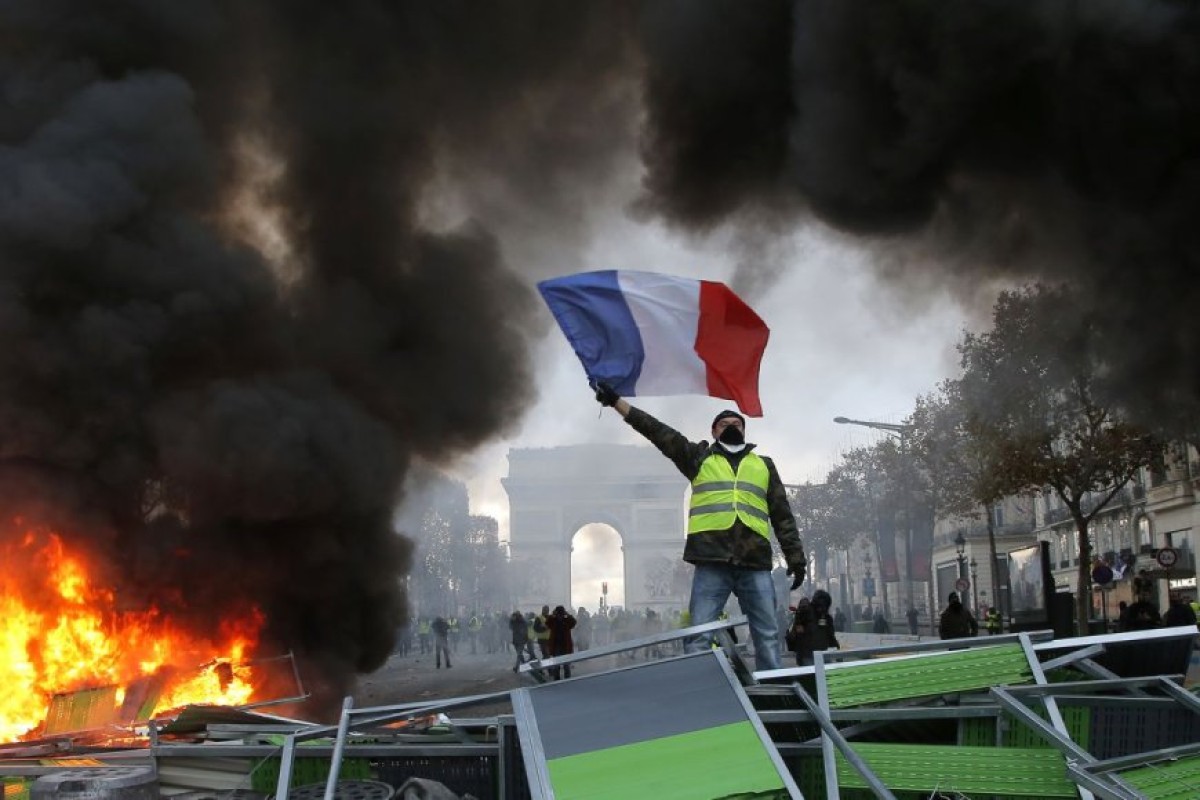 2582
2582
Throughout its vibrant history, France has been a breeding ground for significant moments of upheaval, rebellions, and revolutionary movements. From the French Revolution to the student protests of May 1968, each event has shaped the nation's political, social, and cultural fabric.
The first waves of Revolts
After World War II, France experienced several notable revolts and movements that reflected social and political discontent. The Corsican Nationalist Movement, beginning in the late 1960s, aimed to address the grievances of the Corsican people, seeking greater autonomy and recognition of Corsican identity within the French Republic. The movement involved political parties, organizations, and armed groups, engaging in sporadic acts of violence. The French government responded with military operations, legal measures, and attempts at political dialogue. While the movement still exists today, it has evolved into a more moderate political force, participating in regional elections and advocating for increased regional powers.
The 2005 civil unrest in the suburbs and urban peripheries was triggered by the accidental deaths of two teenagers, leading to widespread protests, riots, arson, looting, and clashes with law enforcement. The unrest exposed social and economic inequalities faced by residents in marginalized neighborhoods, shedding light on issues such as police brutality, unemployment, and lack of opportunities for minority youth. The government responded with measures to improve social integration, urban development, and community policing.
The "Gilets Jaunes" or "Yellow Vests Movement" emerged in late 2018 in response to rising fuel prices and perceived declines in purchasing power for low-income citizens. The movement expanded into a broader protest against socioeconomic disparities and President Emmanuel Macron's policies. The yellow vest protesters organized large-scale demonstrations across the country, demanding fairer wealth distribution, lower taxes, and improved living conditions. While the movement has somewhat diminished, it continues to shape public discourse, contributing to ongoing discussions on social justice, economic inequality, and citizen participation in policymaking.
The revolts after Nahel's death opens a new crisis
The current uprising is justified, stemming from issues of police racism, precarity, and overall discontent. State symbols have been targeted, including city halls, regional government buildings, and police stations, reminiscent of the 2005 revolt triggered by the tragic deaths of Zyed and Bouna. Even the government is apprehensive of this uprising, initially attempting to distance itself from responsibility by denouncing the acts as inexplicable and inexcusable, while calling for the dissolution of a police union associated with far-right activist Eric Zemmour. However, the government swiftly initiated a forceful repression, significantly increasing the number of police officers, deploying special forces, imposing curfews, and conducting over 800 arrests. This repression highlights the neocolonial oppression experienced by residents in working-class districts. Similar tactics have been employed by the government in the past to maintain control in overseas territories. As a result, the specific and neocolonial type of oppression faced by the workers in these districts has once again gained attention and is likely to escalate. The President has announced additional resources to combat the unrest and restore order, while the Interior Minister has instructed regional government heads to halt public transportation during specific hours. Depending on the situation's development, a state of emergency may be declared in the coming days. Meanwhile, right-wing factions, extreme right groups, and police unions are resorting to language reminiscent of civil war.
The question of repression and the political response to it thus seems to be a central challenge in the new phase that has begun. While Nahel's murder may have acted as an electric shock by shining a spotlight on the reality of police violence and, in particular, violence against racially oppressed populations and workers neighborhoods, it occurred at a stage when authoritarian measures are being fiercely intensified in response to a deep crisis in the regime. Batons against demonstrators, compulsory detentions of strikers against pension reform, bans on demonstrations, the banning of the environmental group Soulèvements de Terre - in recent months Macron has taken another leap in his authoritarian offensive to try to crush social protests.
Comment
Post a comment for this article